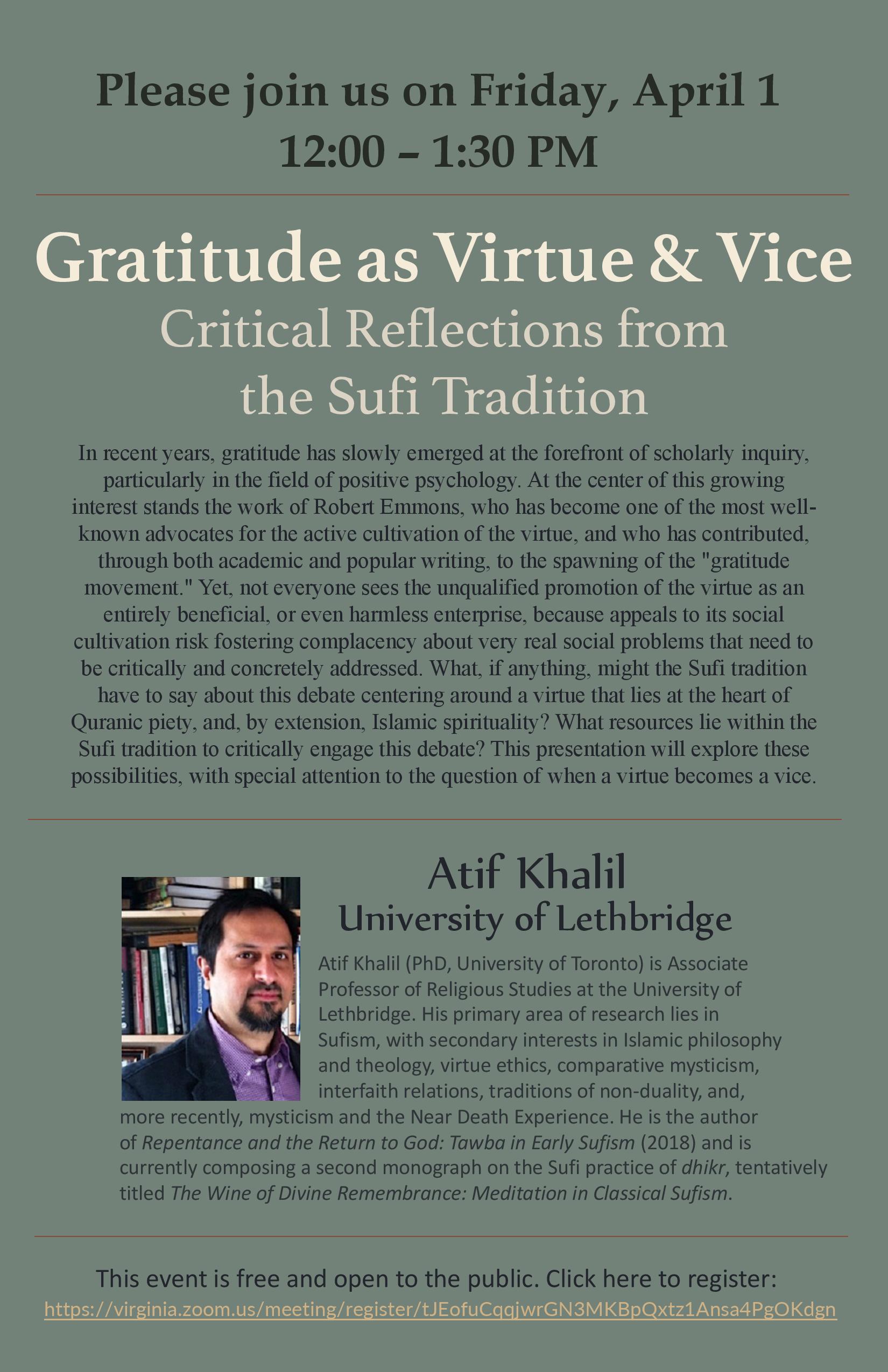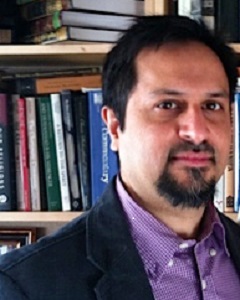Gratitude—a loosely coherent spectrum of responsive attitudes manifested by persons in their dealings with one another and with the cosmos—has been the object of serious study across many traditions for many centuries. We wish to track how gratitude gains determinate shape and concrete reality when embedded in distinct and determinate traditions and when cast in those traditions’ distinct idioms. Gratitude may also, however, spill beyond the doctrinal boundaries of each tradition that cultivates it in ways that both relativize the tradition’s command of its ideals and invigorate its prescription to its adherents to inhabit gratitude. We seek to contour our understanding of gratitude as explored in various traditions, illuminating the phenomenon of gratitude directly.
Upcoming Events

This event is free and open to the public. Please click here to register: https://virginia.zoom.us/meeting/register/tJEofuCqqjwrGN3MKBpQxtz1Ansa4PgOKdgn
Please join us on
Friday, April 1 | 12:00-1:30pm ET
for a presentation by
Atif Khalil
Associate Professor of Religious Studies, University of Lethbridge
"Gratitude as Virtue and Vice: Critical Reflections from the Sufi Tradition"
This event is free and open to the public. Please register at the link below:
https://virginia.zoom.us/meeting/register/tJEofuCqqjwrGN3MKBpQxtz1Ansa4PgOKdgn
In recent years, gratitude has slowly emerged at the forefront of scholarly inquiry, particularly in the field of positive psychology. At the center of this growing interest stands the work of Robert Emmons, who has become one of the most well-known advocates for the active cultivation of the virtue, and who has contributed, through both academic and popular writing, to the spawning of the "gratitude movement." Yet, not everyone sees the unqualified promotion of the virtue as an entirely beneficial, or even harmless enterprise, because appeals to its social cultivation risk fostering complacency about very real social problems that need to be critically and concretely addressed. What, if anything, might the Sufi tradition have to say about this debate centering around a virtue that lies at the heart of Quranic piety, and, by extension, Islamic spirituality? What resources lie within the Sufi tradition to critically engage this debate? This presentation will explore these possibilities, with special attention to the question of when a virtue becomes a vice.
 Atif Khalil (PhD, University of Toronto) is Associate Professor of Religious Studies at the University of Lethbridge. His primary area of research lies in Sufism, with secondary interests in Islamic philosophy and theology, virtue ethics, comparative mysticism, interfaith relations, traditions of non-duality, and, more recently, mysticism and the Near Death Experience. He is the author of Repentance and the Return to God: Tawba in Early Sufism (2018) and is currently composing a second monograph on the Sufi practice of dhikr, tentatively titled The Wine of Divine Remembrance: Meditation in Classical Sufism.
Atif Khalil (PhD, University of Toronto) is Associate Professor of Religious Studies at the University of Lethbridge. His primary area of research lies in Sufism, with secondary interests in Islamic philosophy and theology, virtue ethics, comparative mysticism, interfaith relations, traditions of non-duality, and, more recently, mysticism and the Near Death Experience. He is the author of Repentance and the Return to God: Tawba in Early Sufism (2018) and is currently composing a second monograph on the Sufi practice of dhikr, tentatively titled The Wine of Divine Remembrance: Meditation in Classical Sufism.